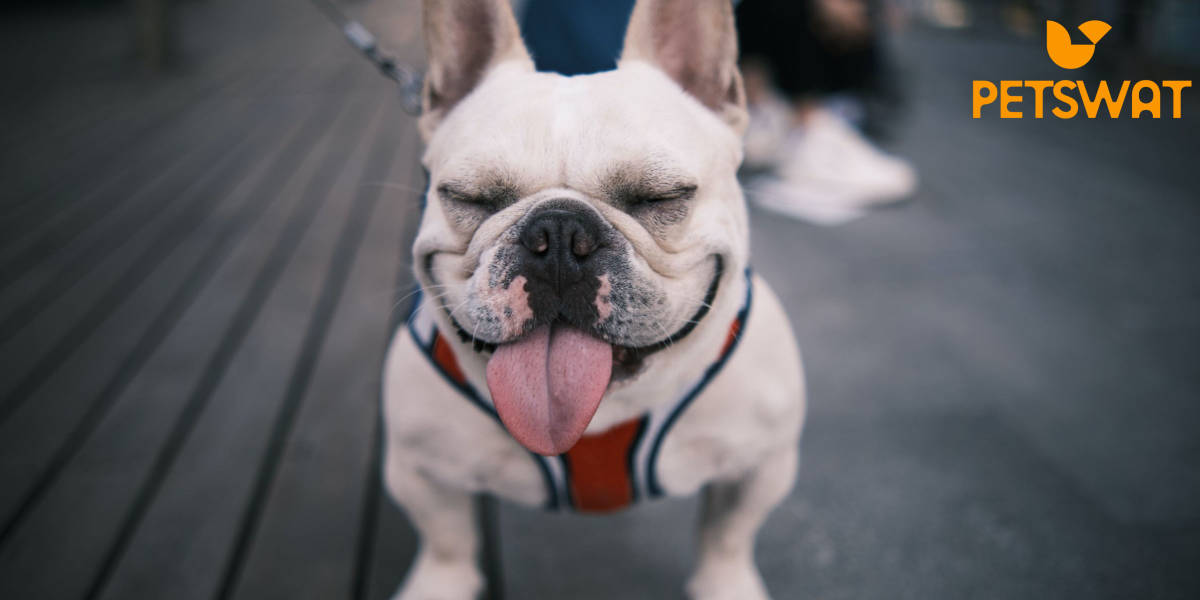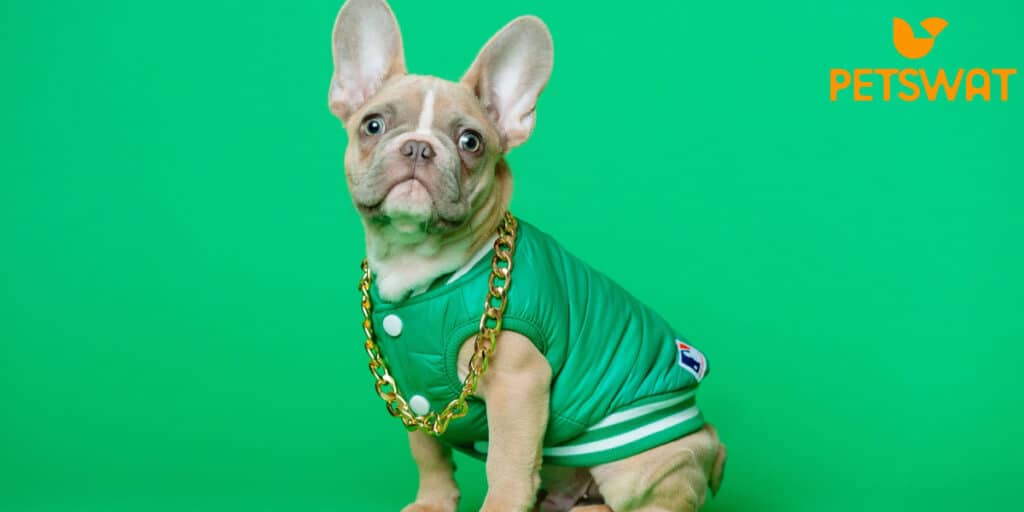French Bulldogs are beloved pets known for their adorable appearance and friendly nature. However, one common issue that many French Bulldog owners face is flatulence. Flatulence, or the passing of gas, can be a source of embarrassment and discomfort for both the dog and its owner. Understanding the causes and factors contributing to flatulence in French Bulldogs is essential for managing this issue effectively. But, why do French Bulldogs fart so much?
French Bulldogs tend to fart more due to their unique anatomy, dietary factors, and susceptibility to digestive issues like flatulence.
The importance of understanding flatulence in French Bulldogs cannot be overstated. Flatulence can be a sign of underlying health issues or dietary problems that need to be addressed. By gaining a deeper understanding of the causes and factors contributing to flatulence in French Bulldogs, owners can take appropriate measures to manage and reduce this issue, improving the overall well-being of their furry friends.
What Causes Flatulence in French Bulldogs?
Flatulence in French Bulldogs can be caused by a variety of factors. One common cause is the ingestion of air during eating or drinking. French Bulldogs are brachycephalic breeds, meaning they have short noses and flat faces. This anatomical feature can lead to gulping down air while eating or drinking, which can result in excessive gas production.
Another cause of flatulence in French Bulldogs is their diet. Certain foods are known to produce more gas in dogs, such as beans, lentils, broccoli, cabbage, and dairy products. Additionally, feeding your French Bulldog a diet high in fat can also contribute to flatulence.
The Anatomy of French Bulldogs and its Role in Flatulence
To understand why French Bulldogs are prone to flatulence, it is important to consider their unique anatomy. French Bulldogs have a compact body structure with a short and stocky build. They also have a shortened muzzle and a relatively large head compared to their body size.
This anatomy affects their respiratory system and digestive system, making them more susceptible to flatulence. The shortened muzzle and large head can lead to breathing difficulties, which can result in swallowing excess air. Additionally, the compact body structure can put pressure on the digestive system, leading to slower digestion and increased gas production.
Diet and Flatulence: How Food Affects French Bulldogs
Diet plays a significant role in flatulence in French Bulldogs. Certain foods are known to produce more gas in dogs, and French Bulldogs are no exception. Foods that are high in fiber, such as beans, lentils, and certain vegetables, can cause increased gas production in the digestive system.
Additionally, feeding your French Bulldog a diet high in fat can also contribute to flatulence. High-fat foods take longer to digest, which can lead to fermentation in the gut and increased gas production. It is important to carefully choose the right diet for your French Bulldog to minimize flatulence.
When it comes to feeding French Bulldogs to reduce flatulence, there are a few tips to keep in mind. First, consider feeding smaller, more frequent meals instead of one large meal. This can help prevent gulping down air while eating and aid in digestion. Additionally, choosing a high-quality dog food that is easily digestible and low in fat can help reduce flatulence.
The Role of Gut Bacteria in French Bulldog Flatulence
Gut bacteria play a crucial role in digestion and can also contribute to flatulence in French Bulldogs. The digestive system of dogs is home to trillions of bacteria that help break down food and absorb nutrients. However, an imbalance in gut bacteria can lead to excessive gas production.
When the balance of gut bacteria is disrupted, certain types of bacteria can produce more gas during the digestion process. This can result in increased flatulence in French Bulldogs. Maintaining a healthy balance of gut bacteria is essential for reducing flatulence.
To maintain healthy gut bacteria in French Bulldogs, it is important to provide them with a balanced and nutritious diet. Probiotics, which are beneficial bacteria, can also be added to their diet to promote a healthy gut microbiome. Additionally, avoiding the use of antibiotics unless necessary can help preserve the balance of gut bacteria.
Medical Conditions that Contribute to Flatulence in French Bulldogs
In some cases, flatulence in French Bulldogs can be a symptom of an underlying medical condition. Gastrointestinal issues such as inflammatory bowel disease, food allergies, or intestinal parasites can all contribute to excessive gas production and flatulence.
If your French Bulldog is experiencing persistent or severe flatulence, it is important to consult with a veterinarian. They can perform a thorough examination and run diagnostic tests to determine if there is an underlying medical condition causing the flatulence. Treatment options will vary depending on the specific condition but may include dietary changes, medication, or other interventions.
Breathing and Flatulence: The Connection in French Bulldogs
The connection between breathing and flatulence in French Bulldogs is closely tied to their unique anatomy. As brachycephalic breeds, French Bulldogs have a shortened muzzle and narrow airways. This can lead to breathing difficulties, such as snoring or snorting, which can result in swallowing excess air.
When French Bulldogs swallow excess air while breathing, it can contribute to flatulence. The swallowed air travels through the digestive system and can result in increased gas production. Managing breathing difficulties in French Bulldogs can help reduce flatulence.
How to Manage and Reduce Flatulence in French Bulldogs
Managing and reducing flatulence in French Bulldogs requires a multi-faceted approach. Here are some tips for managing and reducing flatulence:
| Tips | Description |
|---|---|
| Feed smaller, more frequent meals | Prevents gulping air while eating and aids in digestion. |
| Choose a high-quality dog food | Opt for easily digestible, low-fat dog food to minimize flatulence. |
| Avoid foods that cause gas | Stay away from gas-inducing foods like beans, lentils, broccoli, cabbage, and dairy products. |
| Consider probiotics | Adding probiotics promotes a healthy gut balance and can reduce flatulence. |
| Manage breathing difficulties | Consult a vet for appropriate strategies to manage breathing difficulties and reduce excess air ingestion. |
When to Seek Veterinary Help for French Bulldog Flatulence
While occasional flatulence is normal in dogs, persistent or severe flatulence in French Bulldogs may require veterinary attention. If your French Bulldog is experiencing excessive flatulence accompanied by other symptoms such as diarrhea, vomiting, or weight loss, it is important to seek veterinary help.
During a veterinary visit for flatulence, the veterinarian will perform a thorough examination and may recommend diagnostic tests to determine the underlying cause. Treatment options will vary depending on the specific cause but may include dietary changes, medication, or other interventions.
Conclusion: Living with French Bulldog Flatulence – Tips and Tricks
Living with French Bulldog flatulence can be challenging, but with the right knowledge and management strategies, it is possible to minimize this issue. Understanding the causes and factors contributing to flatulence in French Bulldogs is essential for effective management.
By paying attention to their diet, maintaining a healthy balance of gut bacteria, managing breathing difficulties, and seeking veterinary help when necessary, owners can improve the quality of life for their French Bulldogs and reduce the discomfort caused by flatulence. With proper care and attention, French Bulldogs can live happy and healthy lives, even with the occasional bout of flatulence.
Originally posted 2023-07-11 08:37:25.
Johny is a dedicated pet enthusiast, author, and the driving force behind the insightful content at PetSWAT. With a deep passion for animals and a wealth of knowledge acquired through years of experience, Johny brings a unique perspective to the world of pet care and companionship.



